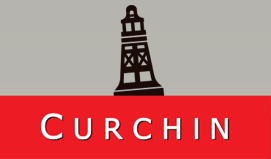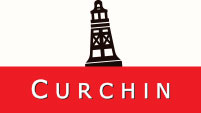As a family business owner, your company’s future viability depends on several factors, including the value of your business. Your business may likely be the most significant asset of your estate, in terms of value for estate tax purposes and for business succession. So it may be wise to have your business valued sooner than later, to start dispersing that value to family members (children, grandchildren, etc.) or others. This will reduce the value of your estate, thus decreasing the tax burden when the business is eventually transitioned to the next generation.
One concept that’s critical for family business owners, planning for future succession, to understand is that the distribution of the business among several family members should be handled equitably. However, that sense of fairness doesn’t always entail a 50-50 split! As you weigh your company’s assets, you’ll want to first determine whether any children or other family members have an interest in running the business someday, and also those who don’t. It’s important to confirm this before you make any gifting or succession decisions, so that you don’t give a certain share of the business to someone who isn’t expecting or wanting it. It’s important to work closely with a financial expert to first discuss your overall plan for gifting your business and conducting a qualified valuation.
Remember that valuation, at best, is an estimate, and can be a challenging process. Your valuation analyst will use a combination of the following methodologies to carefully analyze and determine an appropriate business value:
Capitalization of Earnings. For small family businesses, the value hinges on the amount of cash flow available to the investor or owner. Think of the business as a dividend-producing machine, and simply capitalize these dividends to come to a value. This is also known as “capitalization of historic earnings.” Under this approach, overall profitability, as well as the current and future capital needs of the business must be carefully examined by the valuation analyst.
Projected Earnings. In cases where your business is experiencing periods of growth, an analysis of anticipated earnings, and review the company’s budgets and forecasts can be very useful in determining value. This can sometimes be a more accurate measure than reviewing historical financial statements. However, looking at projected earnings beyond five years can be speculative so care must be taken in this process. This approach is sometimes referred to as the discounted future cash flows method.
Market Approach. Another way to assess the value of your business is to use a market approach, and determine what similar companies are selling for within your industry and marketplace. Your valuation analyst should have access to specific databases that can provide this information. This approach is seldom used by itself but can help ensure that your business is valued within a correct range.
Net Asset Value. It is also useful to look at the net asset value of your business. A family business that’s been held for decades might have certain types of real estate, or even machinery, which actually exceed the operating value of the business. In this case, the default value might be the net asset value.
Other considerations when valuing your business are buy-sell agreements and adequate insurance coverage. Even if it is your children who will be taking over as business partners, consider employing a buy-sell agreement to act as a predetermined guide to help govern the situation in the event of death, or if one business partner is forced to leave the business, or chooses to leave. This arrangement will help ensure that the business will remain solvent if such an event happens. It’s also important to consider appropriate levels of insurance to protect all business owners. This helps mitigate the risk of a major cash flow crunch that sometimes occur at the death of a business partner.
In conclusion, remember that experienced professionals can provide valuable help and assistance as business advisors during the valuation process. By knowing which factors most affect value, family business owners can make more effective succession and ownership transfer decisions to keep the business up and running through future generations. Please feel free to contact me with questions at rkvalo@curchin.com.
Sign up for The Curchin Group’s Family Business Advisor quarterly newsletter to keep up to date on the latest tips and strategies for family businesses.


